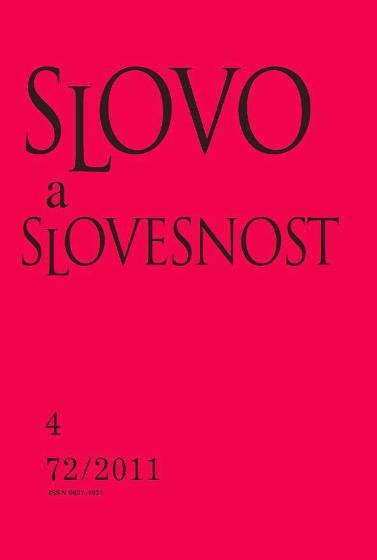Nová konstrukce „Karla Gotta nemusím“ v češtině a slovenštině: případ lexikalizace, pragmatikalizace nebo začínající degramatikalizace?
The new construction “Karla Gotta nemusím” in Czech and Slovak: a case of lexicalization, pragmaticalization or incipient degrammaticalization?
Author(s): Monika Banášová, Björn Hansen, Marek NekulaSubject(s): Language and Literature Studies
Published by: AV ČR - Akademie věd České republiky - Ústav pro jazyk český
Keywords: construction grammar; lexicalization; pragmaticalization; degrammaticalization; modal verb; modality
Summary/Abstract: This article deals with the construction “Karla_Gotta_nemusím” [I don’t have to have Karel Gott] which has recently developed in the Czech and Slovak youth language variety and began spreading to other registers. The contribution is based on a questionnaire carried out among students in Prague, Brno and Trnava. The linguistic analysis is inspired by Construction Grammar. In this specific constructional context involving negation, the original modal verbs of necessity are used as main verbs with the new meaning ‘to dislike’, which is accompanied by a change in the complementation pattern: instead of an infinitive phrase, the modals govern a nominal phrase in the accusative. The second part of the article is dedicated to the question of whether the development of the modals <i>muset</i> and <i>musieť</i> [must, have to] into the construction “Karla_Gotta_nemusím” presents a case of a) lexicalization, b) pragmaticalization, or c) degrammaticalization. This is an instance of a change from a modal auxiliary verb to a lexical one, which could be treated as one of the very rare instances of degrammaticalization.
Journal: Slovo a slovesnost
- Issue Year: 72/2011
- Issue No: 4
- Page Range: 243-267
- Page Count: 25
- Language: Czech

